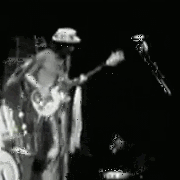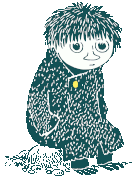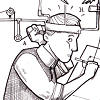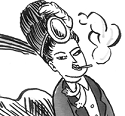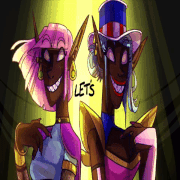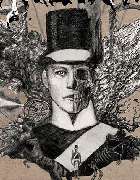|
I love this for how much trouble it can be for any english speaker.Gerard Nolst Trenité posted:The Chaos
|
|
|
|

|
| # ? Apr 28, 2024 17:50 |
|
The Conundrum of the Workshopsquote:When the flush of a new-born sun fell first on Eden's green and gold,
|
|
|
|
My dad used to occasionally read poems to me in bed when i was a little kid. This was the only one that really captured my imagination.quote:Inchcape Rock
|
|
|
|
Robinson Jeffers posted:Suicide's Stone
|
|
|
|
quote:Full moon is falling through the sky. An excerpted rewording of a poem by Chinese poet Tu Fu that Kay used in his novel Under Heaven, and I really like Kay's version a lot.
|
|
|
|
Gerard Manley Hopkins posted:Spring & Fall: to a young child And, just to add to this, as sung by Natalie Merchant: https://www.youtube.com/watch?v=a0WOv8vafMU
|
|
|
|
Kahlil Gibran, The Prophet. It is long, so here is a snippet of it:quote:THEN a woman said, Speak to us of Joy and Sorrow.
|
|
|
|
Tennyson posted:The Charge of the Light Brigade
|
|
|
|
Charles Bukowski - A Smile to Remember we had goldfish and they circled around and around in the bowl on the table near the heavy drapes covering the picture window and my mother, always smiling, wanting us all to be happy, told me, "be happy Henry!" and she was right: it's better to be happy if you can but my father continued to beat her and me several times a week while raging inside his 6-foot-two frame because he couldn't understand what was attacking him from within. my mother, poor fish, wanting to be happy, beaten two or three times a week, telling me to be happy: "Henry, smile! why don't you ever smile?" and then she would smile, to show me how, and it was the saddest smile I ever saw one day the goldfish died, all five of them, they floated on the water, on their sides, their eyes still open, and when my father got home he threw them to the cat there on the kitchen floor and we watched as my mother smiled
|
|
|
|
A couple of my favorite contemporary poems: "Variation on the Word Sleep" by Margaret Atwood: quote:I would like to watch you sleeping, And on a lighter note Billy Collins "Another Reason Why I Don't Keep a Gun in the House": quote:The neighbors’ dog will not stop barking.
|
|
|
|
A classic:quote:There once was a man from Nantucket, Another one of my favorite limericks: quote:There once was a man from Peru, circ dick soleil has a new favorite as of 08:08 on Nov 17, 2013 |
|
|
|
By Stephen Crane-quote:A man said to the universe:
|
|
|
|
Unicorncupcake posted:One Art-Elizabeth Bishop Elizabeth Bishop fans represent! The Moose quote:From narrow provinces Yes it's long but if someone can post the entire Rime of the Ancient Mariner then I don't see the problem
|
|
|
|
I'm pretty fond of The Road Not Taken by Robert Frost quote:Two roads diverged in a yellow wood,
|
|
|
|
Jorge Luis Borges posted:Mis Libros
|
|
|
|
oneof3steves posted:"Variation on the Word Sleep" by Margaret Atwood: That's absolutely beautiful. I'm an uncultured rube, but I've always liked this poem and I'm surprised it hasn't been posted yet: Dylan Thomas posted:Do not go gentle into that good night.
|
|
|
The Love Song of J. Alfred Prufrock, aka goons.poemquote:S'io credesse che mia risposta fosse Senior Woodchuck has a new favorite as of 22:00 on Nov 17, 2013 |
|
|
|
|
Geokinesis posted:I love this for how much trouble it can be for any english speaker. Haha, that was fun to try and read out loud. Thanks for sharing it. A professor recomended me a book by Eugene Ostashevsky and I've pretty much loved his stuff ever since. Are you there God? It's me, DJ Spinoza by Eugene Ostashevsky posted:Are you there, God? He's just really fun to read.
|
|
|
|
Lady Lazarus by Sylvia Plath quote:I have done it again.
|
|
|
|
A staple of Irish English classes, describing the death of a younger brother when he was a child. It still sends shivers down me. Mid-Term Break by Seamus Heaney I sat all morning in the college sick bay Counting bells knelling classes to a close. At two o'clock our neighbors drove me home. In the porch I met my father crying-- He had always taken funerals in his stride-- And Big Jim Evans saying it was a hard blow. The baby cooed and laughed and rocked the pram When I came in, and I was embarrassed By old men standing up to shake my hand And tell me they were "sorry for my trouble," Whispers informed strangers I was the eldest, Away at school, as my mother held my hand In hers and coughed out angry tearless sighs. At ten o'clock the ambulance arrived With the corpse, stanched and bandaged by the nurses. Next morning I went up into the room. Snowdrops And candles soothed the bedside; I saw him For the first time in six weeks. Paler now, Wearing a poppy bruise on his left temple, He lay in the four foot box as in his cot. No gaudy scars, the bumper knocked him clear. A four foot box, a foot for every year.
|
|
|
|
quote:Those Winter Sundays by Robert Hayden
|
|
|
|
My grandmother used to read me classical literature and poetry when i was a little girl. It's one of my fondest memories of her... sitting with me in bed as she read to me Shakespeare, Tennyson, Greek Myths and Legends, and stories of people from ages past. I still think of her when I read my favorite poem of ours by Alfred Noyes. Lorena McKennit (I think is how it's spelled) put it to song, and it too is a favorite of mine. The Highwayman by Alfred Noyes The wind was a torrent of darkness among the gusty trees, The moon was a ghostly galleon tossed upon cloudy seas, The road was a ribbon of moonlight over the purple moor, And the highwayman came riding— Riding—riding— The highwayman came riding, up to the old inn-door. He'd a French cocked-hat on his forehead, a bunch of lace at his chin, A coat of the claret velvet, and breeches of brown doe-skin; They fitted with never a wrinkle: his boots were up to the thigh. And he rode with a jeweled twinkle, His pistol butts a-twinkle, His rapier hilt a-twinkle, under the jeweled sky. Over the cobbles he clattered and clashed in the dark inn-yard, He tapped with his whip on the shutters, but all was locked and barred; He whistled a tune to the window, and who should be waiting there But the landlord's black-eyed daughter, Bess, the landlord's daughter, Plaiting a dark red love-knot into her long black hair. And dark in the dark old inn-yard a stable-wicket creaked Where Tim the ostler listened; his face was white and peaked; His eyes were hollows of madness, his hair like moldy hay, But he loved the landlord's daughter, The landlord's red-lipped daughter, Dumb as a dog he listened, and he heard the robber say— "One kiss, my bonny sweetheart, I'm after a prize tonight, But I shall be back with the yellow gold before the morning light; Yet, if they press me sharply, and harry me through the day, Then look for me by moonlight, Watch for me by moonlight, I'll come to thee by moonlight, though hell should bar the way." He rose upright in the stirrups; he scarce could reach her hand, But she loosened her hair in the casement. His face burnt like a brand As the black cascade of perfume came tumbling over his breast; And he kissed its waves in the moonlight, (Oh, sweet black waves in the moonlight!) Then he tugged at his rein in the moonlight, and galloped away to the West. He did not come in the dawning; he did not come at noon; And out of the tawny sunset, before the rise of the moon, When the road was a gypsy's ribbon, looping the purple moor, A red-coat troop came marching— Marching—marching— King George's men came marching, up to the old inn-door. They said no word to the landlord, they drank his ale instead, But they gagged his daughter and bound her to the foot of her narrow bed; Two of them knelt at her casement, with muskets at their side. There was death at every window; And hell at one dark window; For Bess could see, through her casement, the road that he would ride. They had tied her up to attention, with many a sniggering jest. They had bound a musket beside her, with the barrel beneath her breast. "Now keep good watch!" and they kissed her. She heard the doomed man say— Look for me by moonlight; Watch for me by moonlight; I'll come to thee by moonlight, though hell should bar the way! She twisted her hands behind her; but all the knots held good. She writhed her hands till her fingers were wet with sweat or blood. They stretched and strained in the darkness, and the hours crawled by like years, Till, now, on the stroke of midnight, Cold, on the stroke of midnight, The tip of one finger touched it! The trigger at least was hers! The tip of one finger touched it. She strove no more for the rest. Up, she stood up to attention, with the muzzle beneath her breast. She would not risk their hearing; she would not strive again; For the road lay bare in the moonlight; Blank and bare in the moonlight; And the blood of her veins, in the moonlight, throbbed to her love's refrain. Tlot-tlot; tlot-tlot! Had they heard it? The horse-hoofs ringing clear; Tlot-tlot, tlot-tlot, in the distance? Were they deaf that they did not hear? Down the ribbon of moonlight, over the brow of the hill, The highwayman came riding, Riding, riding! The red-coats looked to their priming! She stood up, straight and still! Tlot-tlot, in the frosty silence! Tlot-tlot, in the echoing night! Nearer he came and nearer! Her face was like a light! Her eyes grew wide for a moment; she drew one last deep breath, Then her finger moved in the moonlight, Her musket shattered the moonlight, Shattered her breast in the moonlight and warned him—with her death. He turned; he spurred to the west; he did not know who stood Bowed, with her head o'er the musket, drenched with her own red blood. Not till the dawn he heard it, his face grew gray to hear How Bess, the landlord's daughter, The landlord's black-eyed daughter, Had watched for her love in the moonlight, and died in the darkness there. Back, he spurred like a madman, shouting a curse to the sky, With the white road smoking behind him and his rapier brandished high! Blood-red were his spurs in the golden noon; wine-red was his velvet coat, When they shot him down on the highway, Down like a dog on the highway, And he lay in his blood on the highway, with the bunch of lace at his throat. And still of a winter's night, they say, when the wind is in the trees, When the moon is a ghostly galleon tossed upon cloudy seas, When the road is a ribbon of moonlight over the purple moor, A highwayman comes riding— Riding—riding— A highwayman comes riding, up to the old inn-door. Over the cobbles he clatters and clangs in the dark inn-yard; He taps with his whip on the shutters, but all is locked and barred; He whistles a tune to the window, and who should be waiting there But the landlord's black-eyed daughter, Bess, the landlord's daughter, Plaiting a dark red love-knot into her long black hair.
|
|
|
|
Omarism by Victor Daley - the first Australlian to earn a living from writing alone.quote:With pen in hand and pipe in mouth,
|
|
|
|
a kitten posted:Suicide's Stone I really dig Robinson Jeffers but I haven't read a whole lot. Thanks for posting this!
|
|
|
|
“Porphyria’s Lover”, by Robert Browning The rain set early in tonight, The sullen wind was soon awake, It tore the elm-tops down for spite, And did its worst to vex the lake: I listened with heart fit to break. When glided in Porphyria; straight She shut the cold out and the storm, And kneeled and made the cheerless grate Blaze up, and all the cottage warm; Which done, she rose, and from her form Withdrew the dripping cloak and shawl, And laid her soiled gloves by, untied Her hat and let the damp hair fall, And, last, she sat down by my side And called me. When no voice replied, She put my arm about her waist, And made her smooth white shoulder bare, And all her yellow hair displaced, And, stooping, made my cheek lie there, And spread, o'er all, her yellow hair, Murmuring how she loved me – she Too weak, for all her heart's endeavor, To set its struggling passion free From pride, and vainer ties dissever, And give herself to me forever. But passion sometimes would prevail, Nor could tonight's gay feast restrain A sudden thought of one so pale For love of her, and all in vain: So, she was come through wind and rain. Be sure I looked up at her eyes Happy and proud; at last I knew Porphyria worshiped me: surprise Made my heart swell, and still it grew While I debated what to do. That moment she was mine, mine, fair, Perfectly pure and good: I found A thing to do, and all her hair In one long yellow string I wound Three times her little throat around, And strangled her. No pain felt she; I am quite sure she felt no pain. As a shut bud that holds a bee, I warily oped her lids: again Laughed the blue eyes without a stain. And I untightened next the tress About her neck; her cheek once more Blushed bright beneath my burning kiss: I propped her head up as before, Only, this time my shoulder bore Her head, which droops upon it still: The smiling rosy little head, So glad it has its utmost will, That all it scorned at once is fled, And I, its love, am gained instead! Porphyria's love: she guessed not how Her darling one wish would be heard. And thus we sit together now, And all night long we have not stirred, And yet God has not said a word!
|
|
|
|
Sailing to Byzantium by W.B. Yeats That is no country for old men. The young In one another's arms, birds in the trees - Those dying generations - at their song, The salmon-falls, the mackerel-crowded seas, Fish, flesh, or fowl, commend all summer long Whatever is begotten, born, and dies. Caught in that sensual music all neglect Monuments of unageing intellect. An aged man is but a paltry thing, A tattered coat upon a stick, unless Soul clap its hands and sing, and louder sing For every tatter in its mortal dress, Nor is there singing school but studying Monuments of its own magnificence; And therefore I have sailed the seas and come To the holy city of Byzantium. O sages standing in God's holy fire As in the gold mosaic of a wall, Come from the holy fire, perne in a gyre, And be the singing-masters of my soul. Consume my heart away; sick with desire And fastened to a dying animal It knows not what it is; and gather me Into the artifice of eternity. Once out of nature I shall never take My bodily form from any natural thing, But such a form as Grecian goldsmiths make Of hammered gold and gold enamelling To keep a drowsy Emperor awake; Or set upon a golden bough to sing To lords and ladies of Byzantium Of what is past, or passing, or to come. Had trouble deciding between that and G.M. Hopkins' 'As Kingfishers Catch Fire'.
|
|
|
Lemme see if I can do my favorite one from memory:Lewis Carroll posted:A boat beneath a sunny sky Also this one, which was quoted in Grendel: Thomas Kinsella posted:I have dreamt it again: standing suddenly still
|
|
|
|
|
Poem request: I dimly remember a poem I read in high school, about a person taking a rowboat out in the night, confronting a great and terrifying mountain (?), and being wracked with fear, turning back. I remember it being a fairly well-known poem, but I can't seem to remember the name of the poem or the author. Does this sound familiar to anyone?
|
|
|
|
I read this on the bus the other day and related to it as a person that works all the time. All I could do was turn and go back to the house and the door that I can't see out of. My life was supposed to be wider, not so forlorn and not standing out in this north country bled like maple. I did not want to write poems about stacking cords of wood, as if the world is that simple, that quiet is not simple or content but finally cornered and killed. I still need the revolution bright as a blaze of the wood stove in the window when I shut the light and mount the stairs to bed. -Dionne Brand.
|
|
|
|
This is my favorite poem, though every few years it seems to change. Will be hard to top this one, though. James Tate, The Promotion I was a dog in my former life, a very good dog, and, thus, I was promoted to a human being. I liked being a dog. I worked for a poor farmer, guarding and herding his sheep. Wolves and coyotes tried to get past me almost every night, and not once did I loose a sheep. The farmer rewarded me with good food, food from his table. He may have been poor, but he ate well. And his children played with me, when they weren't in school or working in the field. I had all the love any dog could hope for. When I got old, they got a new dog, and I trained him in the tricks of the trade. He quickly learned, and the farmer bought me into the house to live with the family. I brought the farmer his slippers in the morning, as he was getting old, too. I was dying slowly, a little bit at a time. The farmer knew this and would bring the new dog in to visit me from time to time. The new dog would entertain me with his flips and flops and nuzzles. And then one morning I just didn't get up. They gave me a fine burial down by the stream under a shade tree. That was the end of my being a dog. Sometimes I miss it so I sit by my window and cry. I live in a high-rise that looks out at a bunch of other high-rises. At my job I work in a cubicle and barely speak to anyone all day. This is my reward for being a good dog. The human wolves don't even see me. They fear me not. doug fuckey has a new favorite as of 04:13 on Nov 19, 2013 |
|
|
|
Dover Beach The sea is calm to-night. The tide is full, the moon lies fair Upon the straits; on the French coast the light Gleams and is gone; the cliffs of England stand; Glimmering and vast, out in the tranquil bay. Come to the window, sweet is the night-air! Only, from the long line of spray Where the sea meets the moon-blanched land, Listen! you hear the grating roar Of pebbles which the waves draw back, and fling, At their return, up the high strand, Begin, and cease, and then again begin, With tremulous cadence slow, and bring The eternal note of sadness in. Sophocles long ago Heard it on the A gaean, and it brought Into his mind the turbid ebb and flow Of human misery; we Find also in the sound a thought, Hearing it by this distant northern sea. The Sea of Faith Was once, too, at the full, and round earth's shore Lay like the folds of a bright girdle furled. But now I only hear Its melancholy, long, withdrawing roar, Retreating, to the breath Of the night-wind, down the vast edges drear And naked shingles of the world. Ah, love, let us be true To one another! for the world, which seems To lie before us like a land of dreams, So various, so beautiful, so new, Hath really neither joy, nor love, nor light, Nor certitude, nor peace, nor help for pain; And we are here as on a darkling plain Swept with confused alarms of struggle and flight, Where ignorant armies clash by night. -Matthew Arnold
|
|
|
|
Disco Salmon posted:
This is one of my mom's favorite poems, and I remember her reciting it to me when I was little  thank you for bringing that memory back. thank you for bringing that memory back.My favorite will always be If, by Rudyard Kipling. quote:If you can keep your head when all about you
|
|
|
|
Two more personal favorites. Ulysses Alfred, Lord Tennyson quote:It little profits that an idle king, and The German Guns S. Baldrick quote:BOOM BOOM BOOM BOOM
|
|
|
|
Dungeon Ecology posted:Poem request: That would be 'The Stolen Boat' an extract from the very long Prelude by William Wordsworth: One summer evening (led by her) I found A little boat tied to a willow tree Within a rocky cave, its usual home. Straight I unloosed her chain, and stepping in Pushed from the shore. It was an act of stealth And troubled pleasure, nor without the voice Of mountain-echoes did my boat move on; Leaving behind her still, on either side, Small circles glittering idly in the moon, Until they melted all into one track Of sparkling light. But now, like one who rows, Proud of his skill, to reach a chosen point With an unswerving line, I fixed my view Upon the summit of a craggy ridge, The horizon's utmost boundary; far above Was nothing but the stars and the grey sky. She was an elfin pinnace; lustily I dipped my oars into the silent lake, And, as I rose upon the stroke, my boat Went heaving through the water like a swan; When, from behind that craggy steep till then The horizon's bound, a huge peak, black and huge, As if with voluntary power instinct, Upreared its head. I struck and struck again, And growing still in stature the grim shape Towered up between me and the stars, and still, For so it seemed, with purpose of its own And measured motion like a living thing, Strode after me. With trembling oars I turned, And through the silent water stole my way Back to the covert of the willow tree; There in her mooring-place I left my bark,-- And through the meadows homeward went, in grave And serious mood; but after I had seen That spectacle, for many days, my brain Worked with a dim and undetermined sense Of unknown modes of being; o'er my thoughts There hung a darkness, call it solitude Or blank desertion. No familiar shapes Remained, no pleasant images of trees, Of sea or sky, no colours of green fields; But huge and mighty forms, that do not live Like living men, moved slowly through the mind By day, and were a trouble to my dreams.
|
|
|
|
Lord Byron - Solitude To sit on rocks, to muse o'er flood and fell, To slowly trace the forest's shady scene, Where things that own not man's dominion dwell, And mortal foot hath ne'er or rarely been; To climb the trackless mountain all unseen, With the wild flock that never needs a fold; Alone o'er steeps and foaming falls to lean; This is not solitude, 'tis but to hold Converse with Nature's charms, and view her stores unrolled. But midst the crowd, the hurry, the shock of men, To hear, to see, to feel and to possess, And roam alone, the world's tired denizen, With none who bless us, none whom we can bless; Minions of splendour shrinking from distress! None that, with kindred consciousness endued, If we were not, would seem to smile the less Of all the flattered, followed, sought and sued; This is to be alone; this, this is solitude!
|
|
|
|
Gonna foreign this joint up a bit. Let's start with the prototypical French Decadent - I've always loved Au Lecteur for the insinuation of collaboration by the reader.Baudelaire in Le Fleur du Mal posted:Au Lecteur Translation 'To The Reader', William Aggeler posted:To the Reader And now, from Old Norse poetry, here's some stuff from Kórmaks Saga. Kórmaks Saga posted:Nú varð mér í mínu, The Saga of Kormak posted:At the door of my soul she is standing, Kórmaks Saga posted:Brunnu beggja kinna The Saga of Kormak posted:There breaks on me, burning upon me, Finally, here's one of my favourite Swedish poems, by Edith Södergran. Kärlek posted:Min själ var en ljusblå dräkt av himlens färg; Love posted:My soul was a light blue dress the colour of the sky; My translation is kinda crappy, but you get the idea. One of these days, I'll start a thread on Scandinavian lit in the Book Barn.
|
|
|
|
https://www.youtube.com/watch?v=_hFW7Ls3v6k"Tony Steinberg: Brave Seventh-Grade Viking Warrior" by Taylor Mali posted:Have you ever seen a Viking ship made out of popsicle sticks
|
|
|
|
Bumphur posted:That would be 'The Stolen Boat' an extract from the very long Prelude by William Wordsworth: That's the very one. The imagery is insane - my mind is Wordsworth's canvas. Thank you for finding it!
|
|
|
|
This: Do not go gentle into that good night, Old age should burn and rave at close of day; Rage, rage against the dying of the light. Though wise men at their end know dark is right, Because their words had forked no lightning they Do not go gentle into that good night. Good men, the last wave by, crying how bright Their frail deeds might have danced in a green bay, Rage, rage against the dying of the light. Wild men who caught and sang the sun in flight, And learn, too late, they grieved it on its way, Do not go gentle into that good night. Grave men, near death, who see with blinding sight Blind eyes could blaze like meteors and be gay, Rage, rage against the dying of the light. And you, my father, there on the sad height, Curse, bless, me now with your fierce tears, I pray. Do not go gentle into that good night. Rage, rage against the dying of the light. -Dylan Thomas or this: (no idea of the author) The wind blew out from Bergen from the dawning to the day, There was a wreck of trees and fall of towers a score of miles away, And drifted like a livid leaf I go before its tide, Spewed out of house and stable, beggared of flag and bride. The heavens are bowed about my head, shouting like seraph wars, With rains that might put out the sun and clean the sky of stars, Rains like the fall of ruined seas from secret worlds above, The roaring of the rains of God none but the lonely love. Feast in my hall, O foemen, and eat and drink and drain, You never loved the sun in heaven as I have loved the rain. The chance of battle changes -- so may all battle be; I stole my lady bride from them, they stole her back from me. I rent her from her red-roofed hall, I rode and saw arise, More lovely than the living flowers the hatred in her eyes. She never loved me, never bent, never was less divine; The sunset never loved me, the wind was never mine. Was it all nothing that she stood imperial in duresse? Silence itself made softer with the sweeping of her dress. O you who drain the cup of life, O you who wear the crown, You never loved a woman's smile as I have loved her frown. The wind blew out from Bergen to the dawning of the day, They ride and run with fifty spears to break and bar my way, I shall not die alone, alone, but kin to all the powers, As merry as the ancient sun and fighting like the flowers. How white their steel, how bright their eyes! I love each laughing knave, Cry high and bid him welcome to the banquet of the brave. Yea, I will bless them as they bend and love them where they lie, When on their skulls the sword I swing falls shattering from the sky. The hour when death is like a light and blood is like a rose, -- You never loved your friends, my friends, as I shall love my foes. Know you what earth shall lose to-night, what rich uncounted loans, What heavy gold of tales untold you bury with my bones? My loves in deep dim meadows, my ships that rode at ease, Ruffling the purple plumage of strange and secret seas. To see this fair earth as it is to me alone was given, The blow that breaks my brow to-night shall break the dome of heaven. The skies I saw, the trees I saw after no eyes shall see, To-night I die the death of God; the stars shall die with me; One sound shall sunder all the spears and break the trumpet's breath: You never laughed in all your life as I shall laugh in death.
|
|
|
|

|
| # ? Apr 28, 2024 17:50 |
|
Charles Bukowski - Nirvana (Read by Tom Waits) http://www.youtube.com/watch?v=HVVzCURucaA
|
|
|











